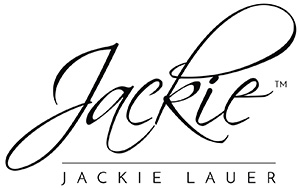
Great Leadership Is All About Authenticity
When it comes to leadership, the words that often come to mind are “strong”, “bold” or maybe even “tough”. We expect our leaders to be fearless and know how to make decisions.
A good leader absolutely needs confidence and must be willing to make difficult decisions. A great leader must also be able to build trust. Nothing builds trust like authenticity.
Someone who is authentic is willing to be transparent. Is willing to admit to a mistake or misjudgment. They speak from the heart. They aren’t afraid to be vulnerable.
Being authentic and vulnerable isn’t about crying or giving insincere pats on the back. In fact, nothing will sell you out faster than trying to fake authenticity. You can smell it a mile away. Faking authenticity will destroy your credibility.
Let them see you sweat
Some people take the advice “never let them see you sweat” a little to literally. It’s fine advice if you’re about to start an arm wrestling competition or facing off against an angry dog. It’s terrible advice if you want to lead a functioning team.
Too many people think of vulnerability as a weakness. In fact, there is nothing more courageous than admitting you have flaws or that you’ve made a mistake. It shows you are willing to be accountable. It builds trust. If your team can trust you, they will respect you. Those are the most productive teams.
Finding your authentic self
Not everyone demonstrates emotion the same way. You don’t have to fundamentally change who you are. If you’re not comfortable with showing emotion, you can still show your authentic self.
The first step is to really know yourself. Be honest and understand your weaknesses. Listen to the feedback of others. It’s not a condemnation, it’s just admitting that you are human and have flaws.
Don’t be afraid of your humanity
You know that guy who can never admit that he’s made a mistake? Don’t be that guy.
Be open to saying, “Yeah, I was wrong about that.” If you mess up, say you’re sorry. If you need help, ask for help. If there’s something you don’t understand, ask for it to be explained. Those are not signs of weakness or incompetency.
On the other hand, if you are someone who really believes that you’re always right, you have more work to do. Just because you think it, doesn’t mean it’s true.
Start by being aware of your thinking and your feelings. Check in to make sure you are dealing with fact and not interpretation.
I often tell my clients to tap into what they “Think, Feel and Want.” In any situation where there’s tension or disagreement, take a breath and take a moment to work through “What do I think is going on right now? How do I feel about it? What do I want?”. When you have access to what you think, feel and want you’re reactions are a choice and much more authentic.
Check it out with the other person. This is not easy but when you’re direct, it removes any ambiguity. It should not be an accusation. You are just checking to make sure you have the right information. Hopefully the other person is authentic with their response, but you can’t control that. However, it will make your thoughts and feelings perfectly clear.
It takes practice
For many of us, being vulnerable and authentic takes practice. As a society, we are taught to hide our feelings and lack of perfection. Leaders who are open to showing their true selves, and allow other to do the same, build teams that trust each other.
Teams built on trust are more productive, aren’t afraid to be innovative and can handle change better. After all, they aren’t wasting time trying to hide their flaws.



